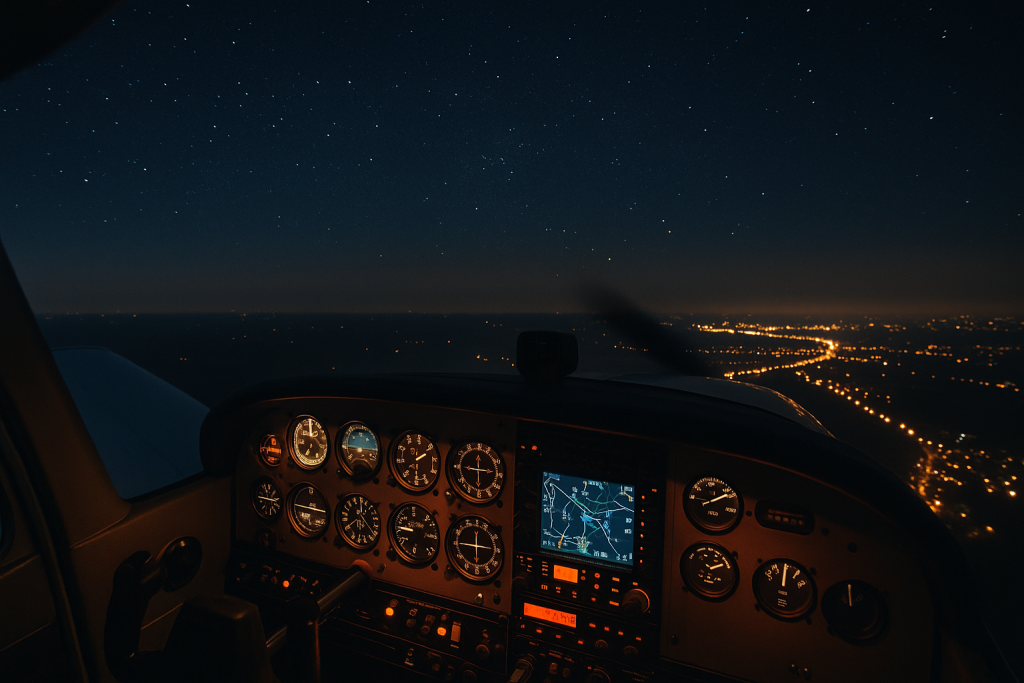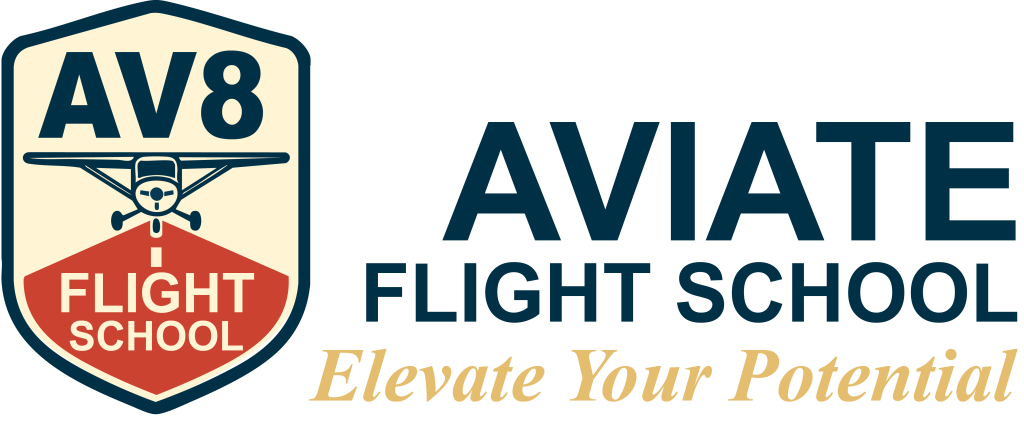- 2131 Airport Drive, Green Bay, WI 54313
- support@aviateflightschool.com
- Opening : Mon-Fri 9:00am - 8:00pm
The Thrill and Challenge of Night Flying

The Thrill and Challenge of Night Flying
There’s something magical about flying at night. The glow of the instruments, the peaceful stillness above the city lights, and the stars stretching across the sky combine to create an unforgettable experience. But with the beauty of night flying comes a unique set of challenges that demand skill, preparation, and respect for safety.
Why Train for Night Flight?
Night flying is more than just a scenic experience—it’s a vital skill for any well-rounded pilot. Whether you’re pursuing your Private Pilot License or building time for a commercial rating, night flight training helps you develop sharper focus, better instrument proficiency, and more confidence in the cockpit.
Many pilots initially feel anxious about flying after dark, but with the right training, night operations can become a highlight of your flying journey.
Key Differences from Day Flying
At night, visual references are limited. Runways, terrain, and even the horizon can be difficult to see without proper lighting. Pilots rely more heavily on instruments, careful planning, and airport lighting systems like PAPI or VASI for glide path guidance. Depth perception changes, weather appears differently, and even spotting traffic becomes more challenging.
Additionally, physiological factors like night vision and fatigue play a much greater role. Understanding how your eyes adjust to darkness and how to avoid illusions is critical for safe flight.
What You’ll Learn in Night Training
When you train for night flying at Aviate Flight School, you’ll cover:
-
Preflight planning and airport lighting
-
Night navigation using VOR, GPS, and checkpoints
-
Emergency procedures at night
-
Controlled vs. uncontrolled field operations
-
Night takeoffs and landings, including soft field and short field techniques
-
How to recognize and handle visual illusions
You’ll also complete the required night cross-country flight and takeoffs/landings to meet FAA standards.
The Reward
Night flying builds confidence and skill, making you a more capable and safer pilot. Plus, there’s nothing quite like landing smoothly under the runway lights after a quiet night flight—it’s a milestone every pilot remembers.
If you’re ready to take your flying to the next level, schedule your night flight training with us today. Our experienced instructors will guide you through every step, ensuring you gain the skills and confidence to navigate the skies, day or night.
